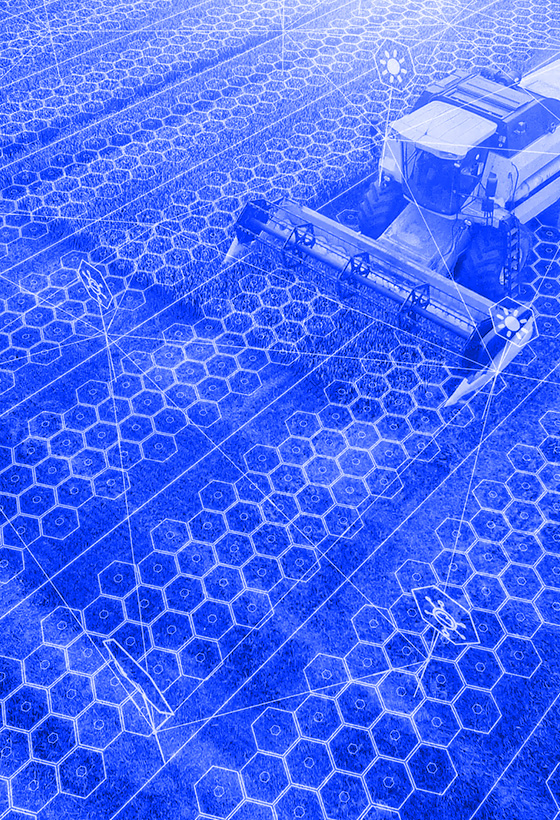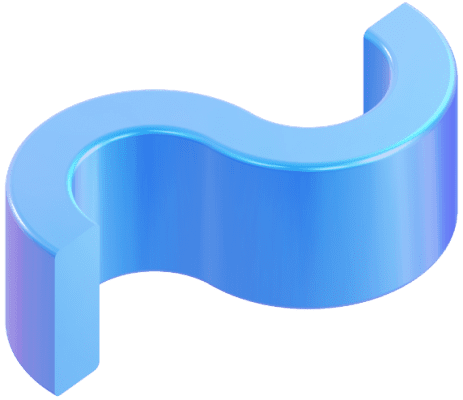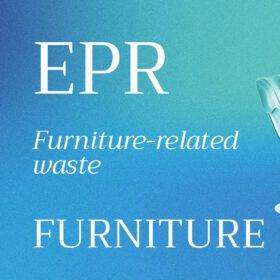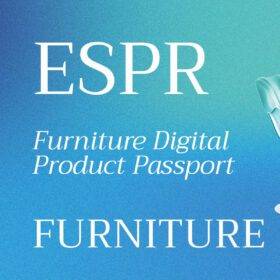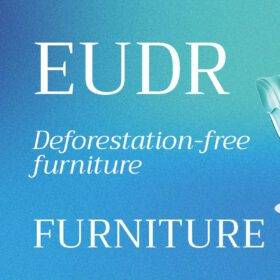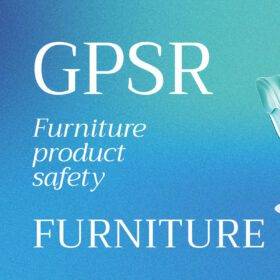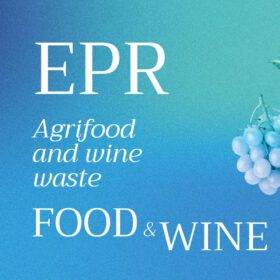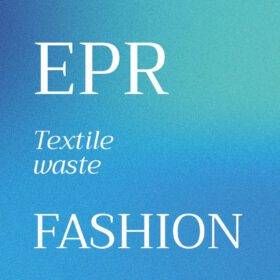Reading time: 4 minutes
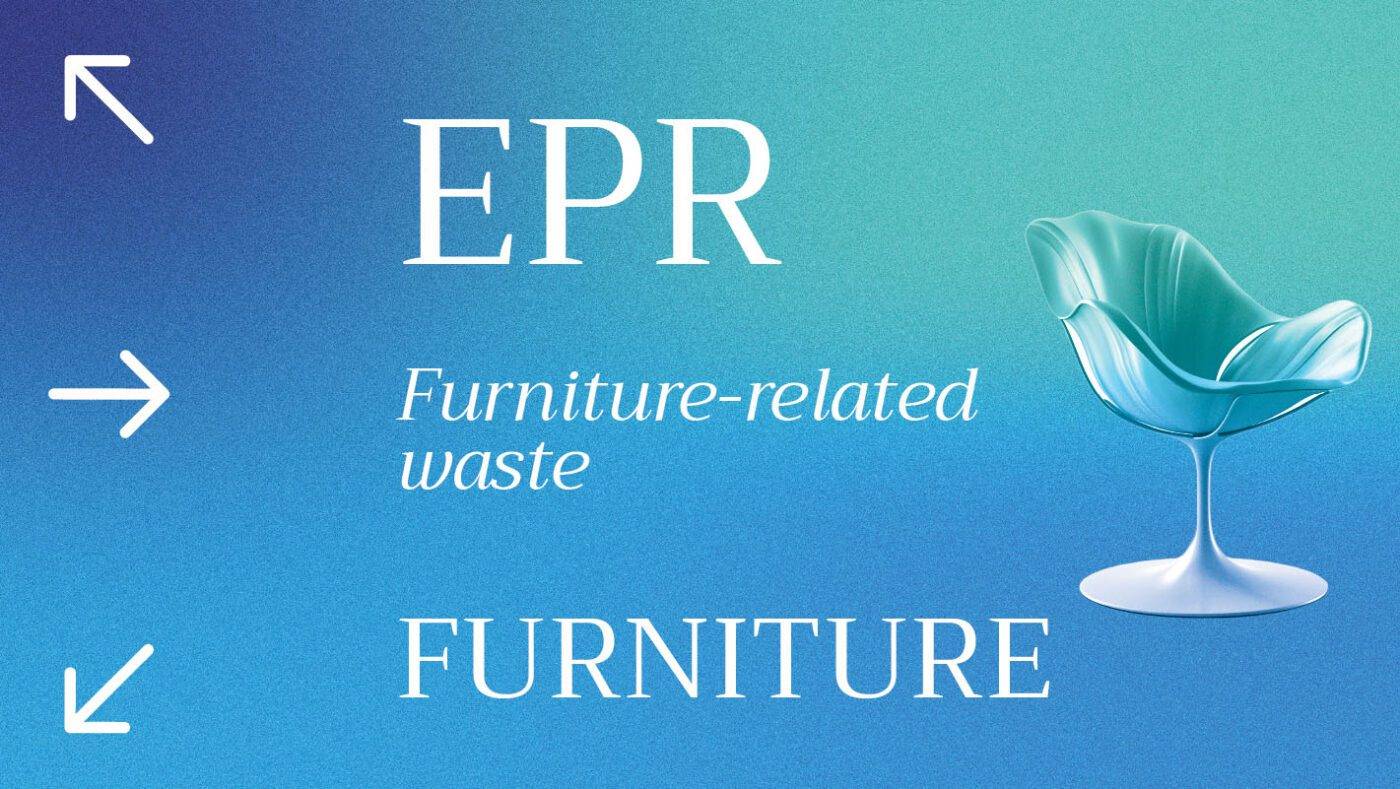
Index
- What does Extended Producer Responsibility (EPR) mean in the context of the furniture items?
- What are the best practices for implementing EPR for furniture items?
- The implementation of EPR in Italy
- Furniture system EPR Programme Agreement signed
- EPR for the furniture items and EZ Lab: how can we support you?
- Discover the other EU Regulations in the furniture and design sector
- Our EPR platform is already operational in multiple sectors
What does Extended Producer Responsibility (EPR) mean in the context of the furniture items?
Extended Producer Responsibility (EPR) is a key principle in promoting sustainability and the circular economy. Introduced by Directive (EU) 2018/851, it requires manufacturers of furniture items to take responsibility for the entire life cycle of their products—including the end-of-life phase—with the goal of reducing environmental impact and promoting material recycling.
What are the best practices for implementing EPR for furniture items?
Companies producing and distributing furniture items are required to implement practices that facilitate the recovery and recycling of end-of-life products. In particular, they must:
- Manage the product life cycle, ensuring that furniture, once discarded, is properly collected, recycled, or disposed of.
- Adopt sustainable design principles, creating furniture that is easy to disassemble and recycle, while avoiding the use of polluting materials.
- Implement traceability systems to monitor the origin of materials used and to ensure proper recycling channels.
- Ensure the safety of end-of-life products, preventing risks to human health and the environment.
- Certify the sustainability of resources by providing documented proof that materials are recyclable, renewable, or responsibly sourced, and that they meet recognised environmental standards.
- Train staff across the supply chain to ensure full alignment with the new regulations.
The implementation of EPR in Italy
In Italy, Directive (EU) 2018/851 was transposed into national law through Legislative Decree No. 116 of 3 September 2020, which introduced significant changes to waste management and Extended Producer Responsibility (EPR). The decree redefined key concepts such as prevention, reuse, recycling, and disposal, establishing a legal framework for waste treatment aimed at protecting the environment and human health.
However, the implementation of EPR for furniture items in Italy still faces numerous challenges. There is a lack of clear, detailed implementing provisions that would define the producer’s liability. Furthermore, there is no structured system in place for the monitoring and traceability of materials, which complicates the practical application of the requirements.
Furniture system EPR Programme Agreement signed
On the occasion of Salone del Mobile 2025, an important Program Agreement was signed between MASE, FederlegnoArredo, and the Consorzio Nazionale Sistema Arredo, marking the beginning of a pilot phase for the introduction of an Extended Producer Responsibility (EPR) regime for furniture items. The agreement aims to gather concrete data on the fate of end-of-life products, providing the Ministry with essential information to define the future regulatory framework. The process is divided into two phases: the first involves sample analysis in four strategic territorial areas to assess the current management of furniture waste, while the second phase focuses on consultations with key stakeholders in the sector, including ANCI, producers, suppliers, distributors, and waste managers. This initiative represents a crucial step towards a more circular and sustainable economy within the design and furniture industries.
EPR for the furniture items and EZ Lab: how can we support you?
Made in Block’s Digital Product Passport (DPP), integrated with blockchain and artificial intelligence, helps furniture companies track their supply chain and communicate transparently with consumers. The platform provides detailed insights into the product lifecycle, contributing to responsible waste management and promoting a circular economy model. The DPP thus becomes a digital touchpoint that strengthens consumer connections, supports more sustainable business models, and ensures compliance with Extended Producer Responsibility (EPR).
Contact us to discover how the Digital Product Passport can help you meet your Extended Producer Responsibility obligations while promoting sustainability and transparency in the furniture supply chain.
Discover the other EU Regulations in the furniture and design sector
- Extended Producer Responsibility (EPR): the platform you needWhat does Extended Producer Responsibility (EPR) mean in the context… >
- ESPR for furniture and design: the compliant software solutionIn this article, we explore the ESPR regulation for furniture… >
- The smart solution for EUDR wood and furniture complianceIn this article, we take a closer look at the… >
- GPSR for furniture: the compliance solutionIn this article, we explore the GPSR for the furniture… >
Our EPR platform is already operational in multiple sectors
- EPR food sector: the ready-to-use solutionThe European Union is strengthening measures to reduce food waste… >
- Extended Producer Responsibility (EPR): the platform you needWhat does Extended Producer Responsibility (EPR) mean in the context… >
- EPR textile waste – The solution for the Extended Producer ResponsibilityThe European Commission has proposed an amendment to the Waste… >
